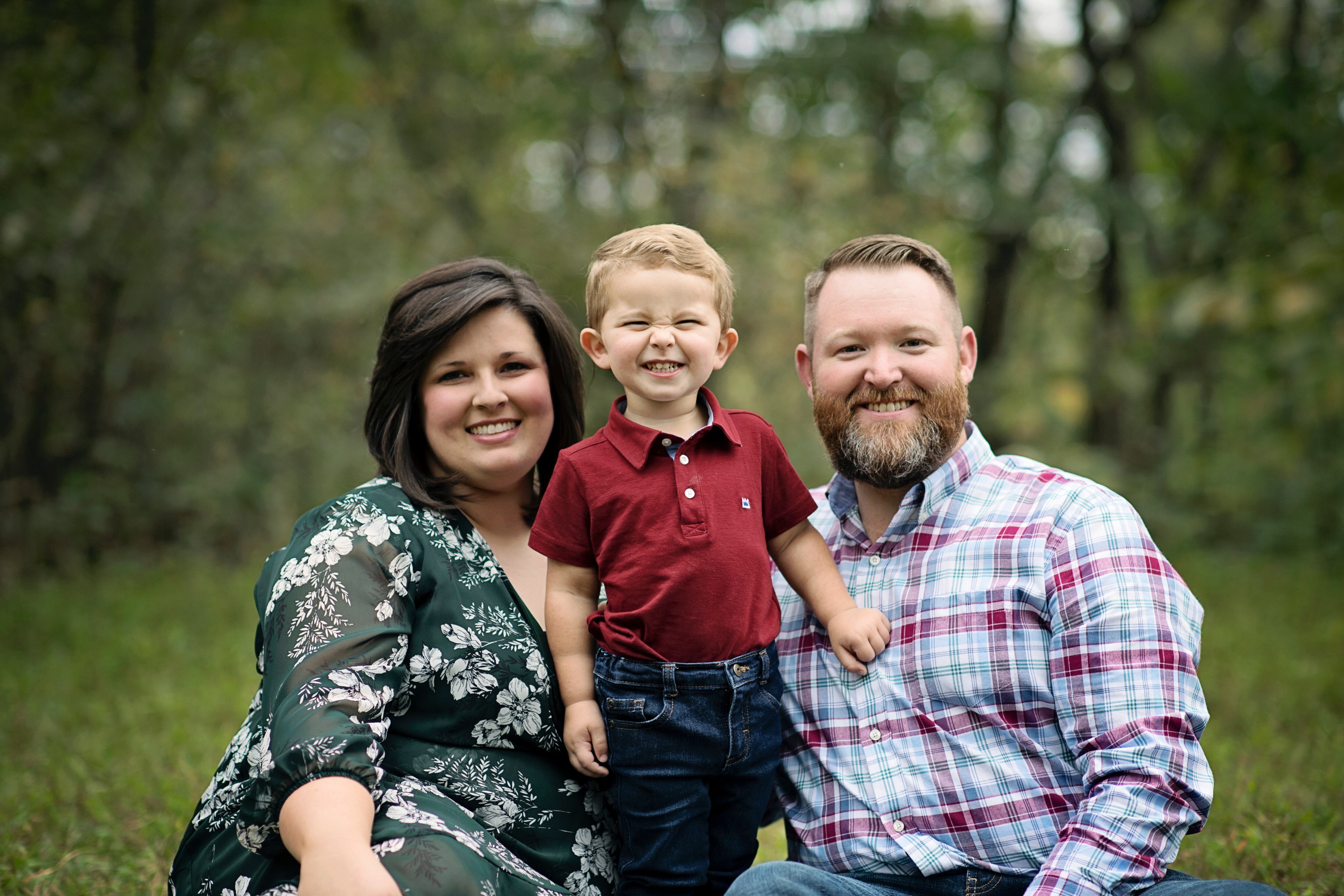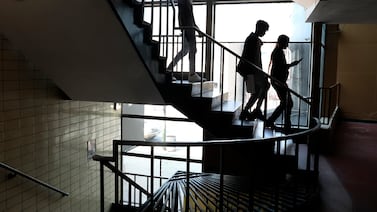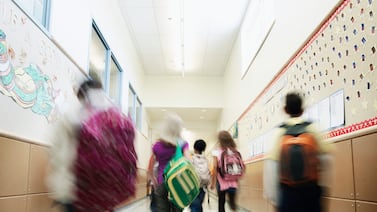Seven months pregnant and with a 3-year-old son at home, Brittney Butner is preparing to start her 10th year in the classroom while facing the largest risks and potentially the most serious consequences of her career.
Not only is the Tennessee high school teacher worried how the pandemic has left her students academically and emotionally, she’s anxious about exposing herself and her family to the highly contagious and potentially deadly coronavirus when her school reopens in early August.
“I love my job, but I’m torn,” said Butner, who teaches in Franklin County, a rural area that continues to see cases of COVID-19 climb.
“Financially, I don’t have a choice, and I think a lot of teachers are in that boat. But in the back of my mind, I’m asking myself, ‘Is this worth the risk?’” she said.
Like hundreds of thousands of teachers across the nation, Butner is facing hard choices. Should I return to my school building? Should I pursue a remote teaching option if my district offers one? Should I leave the profession altogether?
“Educators are truly fearful for their lives, and also for the health and safety of their families,” said Beth Brown, president of the Tennessee Education Association, or TEA, the state’s largest teacher organization.
While medical experts believe the overall health risk to children is low if they contract COVID-19, educators are concerned that students, faculty, and staff could unknowingly spread the virus to more vulnerable populations because many carriers, especially younger ones, don’t show symptoms.
Brown said that, with just a few exceptions, local reopening plans don’t guarantee the health and safety of students and educators.
“I’ve spoken with teachers whose spouses have cancer or other serious illnesses. Some have a medically fragile child. Others are worried that they won’t be able to see their aging parents when school starts. The stories are heartbreaking,” she said.
Confusion also is growing because of the hodgepodge of reopening plans among Tennessee’s 147 school districts, as well as a lack of clear direction from state and national leaders. The messages have shifted from prioritizing the health and safety of school children to reopening school buildings whenever possible and managing the virus, even if safe in-person school may not be possible.
This week, a group of doctors and health care workers urged Gov. Bill Lee and local elected officials to postpone the school year’s start amid the state’s worsening public health crisis.
Even so, Lee is calling for a brick-and-mortar reopening of schools as planned, while letting local school leaders ultimately decide. “Our goal is for kids to go in class … and do it safely,” he said during his weekly press conference on Tuesday.
On Friday, after another record-high number of statewide cases and 29 more COVID-related deaths in the previous 24 hours, a spokesman said the governor’s position hasn’t changed. “We are working closely with districts to ensure they have the tools and funding needed,” said press secretary Gillum Ferguson.
Meanwhile, groups like the TEA and Professional Educators of Tennessee have been inundated with calls and emails from educators asking about everything from taking advantage of the Family Medical Leave Act to whether they should sign legal papers preventing them from suing their district if they contract the virus on the job.
“Teachers are hurt that a public that was talking a couple of months ago about how valuable teachers are is now telling them to shut up and get back to their classrooms,” Brown said.
JC Bowman, who heads the Professional Educators of Tennessee, agrees that teachers “feel like this state has hung them out to dry.”
“Our governor and Commissioner [Penny] Schwinn need to be out in front of this fear and confusion and answering teachers’ questions,” Bowman said. “And the discussion needs to be driven by science, not politics.”
Memphis teacher LaRita Mitchell is anxious to see if the governor’s promise of adequate resources is kept at Sherwood Elementary School, where she teaches math and science. Even before COVID arrived last spring, it wasn’t unusual to find her school’s bathroom stalls without toilet paper or sinks without warm water.
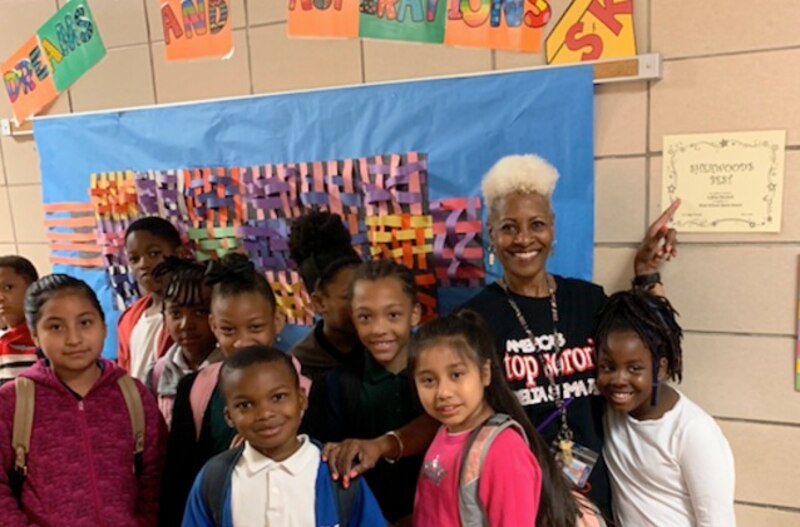
“I think one of the biggest concerns I’m hearing in my school is about hygiene and whether our building will be clean,” said Mitchell, noting that janitorial services are outsourced by Shelby County Schools.
“If the hygiene was not there before, will it be there now? And will there be personnel to handle the extra cleaning and disinfecting, or will this just be another duty for teachers?” she asked.
Despite being “nervous,” Mitchell plans to teach in person this fall before the same students she had last spring when the virus abruptly shut down campuses nationwide. She is 61 — part of an age group that is more at risk of complications if she contracts COVID — but in good health.
“I’m choosing this path, but this is an intensely personal decision, and there are no right or wrong answers at this point,” she said of colleagues who have asked to teach remotely as part of the district’s new option.
On the other end of the state, Joe Crabtree spent several hours Friday reconfiguring desks and chairs in his Johnson City classroom to try to keep 30-plus students 6 feet apart. That was physically impossible, so he settled for 5 feet and is trying to buy plexiglass dividers out of his own pocket to add barriers between students who share a desk.
“By their nature, seventh-graders are social butterflies, but I’m going to do my best to have them socially distanced,” said Crabtree, who plans to mask up and modify his teaching approach to eliminate small group work.
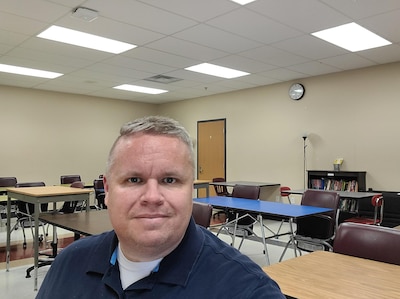
Cases of COVID have skyrocketed in the last two weeks in Johnson City, where Crabtree teaches social studies at Liberty Bell Middle School. He lives alone so isn’t concerned about bringing the virus home to others, but definitely feels a burden that his students could get sick at school, or worse.
“Teachers want to be in the classroom. That’s where we do our best work,” he said. “But if it was my decision, I would not open schools right now while the numbers are climbing.”
Butner is worried too, even in a rural area like Franklin County.
“We’re not seeing the kinds of numbers that places like Nashville or Murfreesboro are experiencing,” she said. “but our cases have definitely gone up and that’s worrisome enough. I’m pregnant and have a young young child at home.”
Her plan: Start the school year in person, take an 8-week maternity leave after having her baby in late September, and then return to finish the school year. She’s bracing for the most difficult year of her teaching career.
“We’ll do the best we can; that’s what teachers do. But I’ve never started a school year with this many unknowns,” she said. “For an English teacher, I feel like I have no words.”


